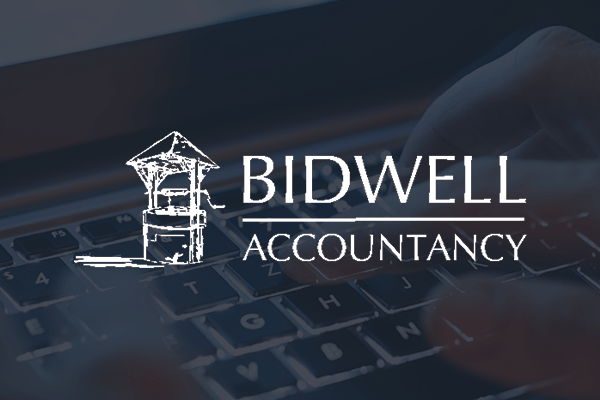November Newsletter

As a country and certainly as business owners we are facing constant changes in the face of an unsettled government and we plan to keep you updated as things progress. Hopefully we will start to see some clarity very soon.
This newsletter includes a timely reminder for seasonal staff rewards and their tax implications, particularly if you exceed the £150 per person allowance. There are some changes to the VAT registration process which will automatically sign businesses up to Making Tax Digital. And we’ve included a reminder to be extra vigilant for scammers pretending to be HMRC, offering rebates or using threatening behaviour. Changes to clients who use Xero and send invoices out via the system. We conclude with our regular reminders of the deadlines you should be aware of for this time of year.
Latest Blogs
Throughout the month we release blogs on our website which will feel may help you with running your businesses.
Please make sure you like our Social Media pages to get the latest blogs as soon as they are released.
All our blogs can be found on the link below
Please see links to our latest blogs below
- What are disbursements for VAT?
- Bringing your cashflow processes into the digital age
- Business Planning
- Paying dividends the tax-efficient way
- How to get the most out of your pension strategy
- Are you making the most of your business data?
- Could you be personally liable for your company taxes?
Mini-budget reversals
The tax reductions set out in the Kwarteng/Truss mini-budget of 22 September 2022 have been scrapped, apart from the cancellation of the NIC increase for 2022-23, the withdrawal of the Healthcare Levy from April 2023, the changes to Stamp Duty Land Tax and the increase in the Annual Investment Allowance.
As we are presented with yet another new face at 10 Downing Street, the cabinet has delayed its fiscal statement until 17 November. We will be reporting on these developments in the next newsletter.
Hopefully, the new government will be mindful that recent changes in political circles have had a disastrous impact on small businesses across the UK. Double digit inflation and higher interest rates are compounding external pressures and making life difficult across multiple business sectors.
Christmas gifts for staff
Business owners who are minded to celebrate the forthcoming Christmas break with their staff are reminded that there is a tax-free allowance for the provision of an annual party or other event for the benefit of staff and their partners. The present limit to tax relief is £150 per head. If this amount is exceeded, the full cost of the benefit is taxable not the excess over £150.
Where it’s not possible to calculate individual costs an averaging process can be adopted. There are also other considerations that must be met to qualify for this relief.
Another way to benefit staff tax-free for Christmas is to consider making small gifts.
You don’t have to pay tax on a benefit (gift) to your employee if all of the following apply:
- it cost you £50 or less to provide
- it isn’t cash or a cash voucher
- it isn’t a reward for their work or performance
- it isn’t in the terms of their contract
Gifts that fall into this category are known as a ‘trivial benefit’; and whilst they may be much more than trivial in substance, you don’t need to pay tax or National Insurance or let HMRC know you are making the gift.
Any gifts that do not meet this definition will likely be taxable.
Gifts to directors are treated in a similar fashion with one over-riding condition: a director cannot receive trivial gifts of more than £300 in total each tax year. This restriction only applies to the directors of "close companies". A close company is a limited company with five or fewer shareholders.
Watch out for VAT charge
If you recover the input tax charged when you buy gifts for employees, and if the total value of gifts given to an employee in a tax year exceeds £50, then you will have to account for VAT on the total value of gifts provided. If this is the case, you may be advised to avoid recovering the VAT in the first place.
VAT registration changes
The way businesses register for VAT changed on 1 August 2022. A new VAT Registration Service (VRS) has been created to manage the process.
One of the key features of the new VRS is that every business will be automatically signed up to Making Tax Digital (MTD) VAT as part of registration. This removes the need for businesses to take that extra step.
To complete a VAT registration, you will need your:
- name
- date of birth
- National Insurance number
- ID, such as your passport or driving licence
- details of turnover and nature of business
- bank account details (or a reason if no bank account details are provided)
- Unique Tax Reference (UTR) number
If you are registering a limited company, they must have a Company Registration Number and a Corporation Tax Unique Taxpayer Reference (UTR) to complete the VAT registration process. Individuals and Partnerships do not need to have a Self-assessment UTR to register for VAT, but if they do have one, they must supply it.
HMRC recommend that you have this information to hand when starting an application. If you are waiting for information to register you can save and edit the application for 7 days by clicking "Save and Exit". This will soon be increased to 28 days.
Self-assessment scams warning
Criminals claiming to be from HMRC have targeted individuals by email, text and phone with their communications ranging from offering bogus tax rebates to threatening arrest for tax evasion. Contacts like these should sound alarm bells - HMRC would never call threatening arrest.
Anyone contacted by someone claiming to be from HMRC in a way that arouses suspicion is advised to take their time and check the scams advice on GOV.UK.
Taxpayers can report any suspicious activity to HMRC. They can forward suspicious texts claiming to be from HMRC to 60599 and emails to phishing@hmrc.gov.uk. Any tax scam phone calls can be reported to HMRC using the online form on GOV.UK.
Xero Invoices updated
From November 16, 2022 new practice users and new clients will access the new invoicing experience by default when they first try Invoices in Xero. You will still be able to switch between new and classic invoicing if you choose. This is done by clicking the “Switch to [classic invoicing/new invoicing]” link at the bottom of the invoicing page.
You do not need to do anything as a result of this change. If it’s been a while since you tried new invoicing, now might be a good time to take another look. New invoicing has features that are designed to help you save time and build stronger relationships with your customers.
For more details then please click on the link below
new invoicing and the available features.
Tax Diary November/December 2022
1 November 2022 - Due date for Corporation Tax due for the year ended 31 January 2022.
19 November 2022 - PAYE and NIC deductions due for month ended 5 November 2022. (If you pay your tax electronically the due date is 22 November 2022.)
19 November 2022 - Filing deadline for the CIS300 monthly return for the month ended 5 November 2022.
19 November 2022 - CIS tax deducted for the month ended 5 November 2022 is payable by today.
1 December 2022 - Due date for Corporation Tax payable for the year ended 28 February 2022.
19 December 2022 - PAYE and NIC deductions due for month ended 5 December 2022. (If you pay your tax electronically the due date is 22 December 2022).
19 December 2022 - Filing deadline for the CIS300 monthly return for the month ended 5 December 2022.
19 December 2022 - CIS tax deducted for the month ended 5 December 2022 is payable by today.
30 December 2022 - Deadline for filing 2021-22 self-assessment tax returns online to include a claim for under payments to be collected via tax code in 2023-24.

Unit 157, Milton Keynes Business Centre,
Foxhunter Drive, Milton Keynes,
Buckinghamshire, MK14 6GD
Bidwell Accountancy







